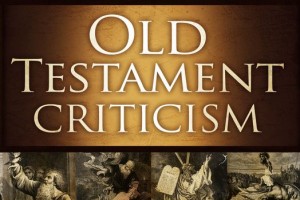Recently a new phenomenon has hit the Christian scene becoming a staple of most radio stations and many Sunday morning worship services, Reckless Love. No, not the Finnish Guns and Roses cover band, the worship song by Cory Asbury. This song, despite its insanely huge popularity, has taken some criticism from many high profile Christian authorities.
Most recently, John Piper offered some veiled criticism of the song, implying that, even though he didn’t know the author’s theology, the refrain of the song, “Oh, the overwhelming, never-ending, reckless love of God” could fuel an open-theistic worldview. He then went on to offer some veiled praise of the song and its potential for a radically Calvinistic interpretation saying,
“But maybe the author used the word reckless in the sense that God’s love may look, to an outsider, foolish, ill-advised, brash, and breakneck, but in fact, the foolishness of God is wiser than the wisdom of men. The recklessness of God is more assured of success than the most carefully executed plans of men. Maybe.”
Strangely, these “maybes” didn’t show up in his negative appraisal the song. In fact, Piper openly expressed his doubts that Cory Asbury would have such a Calvinistic outlook, stating, again, that he doesn’t know much about the author.
It took me about 30 seconds (25 of which involved finding my laptop power chord after seeing that my youngest was monopolizing my iPad in a serious Roblocks bout of Jail Break, asking my wife to turn down her sick-on-the-couch-binge-watching of Dr. Quinn Medicine Woman, and demanding that Alexa turn on my table side lamp so I wouldn’t have to reach the 26 inches to twist that annoying switch-thing) of an internet search to get to know the author a bit. In fact, there were several articles in which Asbury was quoted concerning his own perspective on the term “reckless.” I even found a YouTube video where Asbury explicitly states the reason he chose this term, all in the context of a pretty hefty theologically driven explanation. (Maybe the fact that he didn’t specifically claim allegiance to a certain denomination would leave Piper unsettled, I guess we will never know.) An additional investment of 10 seconds revealed Asbury’s public Facebook page where he addresses the very issue in question almost a year previous to Piper’s scholarly exploration of the author’s intentional word choice (June 14, 2017).
Ok, maybe I’m being a bit unfair to Piper but, as you can probably tell from the tone of my writing, I’m a little sick of everything in the evangelical world having to be so black and white. You either love Asbury’s song and sing it whole heartedly, or ban it in fear that it might turn your congregation into a bunch of heretical misanthropes hell-bent on revitalizing some semblance of a semi-pelagiaistic worldview.
I’ll offer an alternative view, one that Piper hints at but quickly moves past in order to make his point. This view involves us looking at the terms in which Asbury describes God’s unrelenting and loving pursuit of us; a pursuit that doesn’t make sense and a love that obliterates our preconceived notions. This loving pursuit, viewed by Asbury as “overwhelming” and “never-ending”, paints a picture of a God that is willing to step into the muck and mire of our everyday lives and challenge our worldview. God “chases” and “fights for” us in a way that should boggle our finite minds. We cannot fathom how God’s immense love coupled with his unstoppable power even works. It’s beyond our human capabilities to grasp.
All of these things leave us in a state of tension. So, we invent language born of our own finite conception of the world around us in order to describe characteristics of God that stretch down from the infinite, things that we can only catch the briefest glimpses of because God has chosen to reveal by working among us. Through his Spirit, he lets us in on aspects of the eternal mystery that necessarily exists between creature and Creator. Quite often, this revelation defies our own semblance of logic in regards to our hastily constructed worldview. These revelatory events shake up the status quo and disintegrate long-existing social norms, all the while reconciling aspects of our understanding of his nature and character. In short, sometimes we don’t have the words to speak and we reappropriate language in order to express the paradox God’s revelation creates, a paradox between what we thought to be true (given our experience of the world) and what we now know to be true (given the revelation of his nature and character).
I believe we should feel this awkward tension when we sing Reckless Love, especially when it comes to the word “reckless.” As pastors and teachers, let’s not shy away from this tension! (A course of action, sadly, wholeheartedly suggested by Piper.) Let’s dive in head first and use it as an opportunity to lead the people under our care to a greater conversation that directly relates to discovering who they are in light of God’s continued loving pursuit of his people, a pursuit that could even be viewed by some as….. reckless.





4 Comments
Leave your reply.